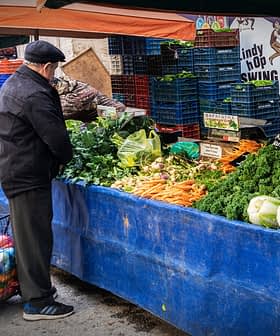The Greek Council of State, the country’s supreme court, has dismissed an appeal by producers from Messenia against a 2022 ministerial decree that equated the terms ‘Kalamon’ and ‘Kalamata.’
The ruling effectively frees the use of ‘Kalamata’ – named after the administrative region on the south of the Peloponnese peninsula – for all producers of Kalamon table olives in the country.
Until 2018, only producers based in Messenia could market their Kalamata olives under the name Kalamata, complemented by the Protected Designation of Origin certification obtained in 1996. Olives of the same cultivar grown in other regions were marketed only as ‘Kalamon olives.’
See Also:A Dismal Harvest Concludes in GreeceWith ministerial decrees issued in 2018 and 2022, the Greek state registered Kalamata olives on the national list of plant varieties as synonymous with the Kalamon cultivar, allowing producers of the table olive variety throughout the country to promote their Kalamon olives under the Kalamata brand name.
While the 2018 decree was overturned after an appeal by Messenian producers who previously had exclusive use of the Kalamata name, the Supreme Court rejected another appeal against the 2022 decree.
The court ruled that ‘Kalamata’ can legally coexist with the ‘PDO Kalamata olives,’ ending a long-lasting controversy over using the coveted Kalamata name, which has divided the country’s table olives sector for years.
“Today is a historic day for the table olives sector and the country, as it is a day of vindication for thousands of Greek olive growers and processing, standardizing and exporting companies of the product,” the Panhellenic Association of Manufacturers, Packers and Exporters of Table Olives (Pemete) said in an announcement following the court’s decision.
“After 20 years of patience and efforts of the country’s exporting companies… the council provided a fair solution that allows the simultaneous circulation of the ‘Kalamata’ and ‘Kalamata PDO’ names,” they added.
Messenia accounts for around three percent of the Kalamon olives produced in the country. In contrast, the most significant quantities are produced in western Greece and sporadically in other regions.
The liberalization of the Kalamata name will allow Kalamon olive producers across Greece to earn more from their table olive exports due to the global recognition of the Kalamata appellation.
However, the Messenian producers have argued that danger looms for Kalamon growers abroad to usurp the term ‘Kalamata,’ impacting Greek producers.
“Essentially, the 2022 decree not only allows Kalamon olive producers in Greece to market their olives as Kalamata, but it also allows all producers of Kalamon olives on the planet to market their Kalamon olives as Kalamata olives in the European market,” Yiannis Pazios, the head of the association in support of Messenia PDO olive producers, told local media.
He added, “It has created a back door that allows imported Kalamon olives from other countries to be traded as Kalamata olives, which will result in a reduction in the product’s price.”
With an average annual production of 85,000 to 100,000 tons, Kalamon/Kalamata table olives are a leading export product of Greece, worth around €200 million a year.
In addition, Greek exports of the Kalamon and other table olive varieties, such as the Chalkidiki and the Amfissis, exhibit relative immunity to production fluctuations, maintaining or sometimes even increasing their share in international markets.
Although in the 2023/24 crop year, the country’s production of table olives totaled only 110,000 tons due to reduced fruiting of the trees, a 66 percent drop compared to the previous crop year, data from the International Olive Council showed that Greek exports of table olives reached 195,000 tons in 2023, an increase of 13 percent compared to 2022.









